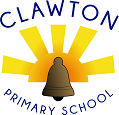Starting to Read - Ages 4-5 – Reception Class
When your child is aged 4 or 5, they will probably begin to start learning to read at school, using a phonics-based approach. There are lots of things you can do to support this at home. At this stage they will still enjoy sharing picture books of all kinds with you, but will probably start bringing home simple decodable books (books which have been carefully written, using a gradual introduction of new letters and sounds, so that children can practise their developing reading skills) from school too. Decodable books are designed for your child to read and practise phonics. Here are a few ideas to make sure you make the most of all these different types of books.


Reading together
1. Read together every day
Reading with your child continues to be really important so keep reading lots of different books together. Most picture books will be too hard for a child of this age to read alone, but it’s good for them just to listen to a story or information book and talk about the pictures with you.
2. Allow some reading alone time
Try a short reading time when you are reading (newspaper, magazine, book, on-screen) and your child is too. It’s good to start this habit of quiet reading time early, however short to begin with!
3. Talk about the book before you begin reading
Before reading a book together, always talk about the title, the pictures and the information on the cover (front and back). If it’s new, ask what your child thinks the book might be about. If it’s an old favourite then talk about the bits you love most! Don’t worry if some books get chosen again and again!
4. Read with different voices
When reading aloud use lots of expression and try different voices for different characters. Get your child to join in with bits too, such as, ‘They pulled and they pulled!’ and ‘Fee, fi, fo, fom...’. See if your child can copy you!
5. Ask each other questions
Talk about the stories and information books when you’ve finished reading together and ask questions. What did you like best? Why did the tiger let Floppy go? Have you ever played a trick on anybody? Get your child to ask you questions too.
6. Retell stories and events
Ask your child about things that happened at school or with their friends. Sometimes, after you’ve shared a story or watched a TV programme, ask your child to tell you about it. Help them by asking What happened first? What next? And then what?
Early reading skills
1. Listen to your child read
Your child might bring home decodable books (books which have been carefully written, using a gradual introduction of new letters and sounds, so that children can practise their developing reading skills) from school. Designed to allow your child to learn how to read independently, these books help children apply their phonic skills – sounding out the words on the page. Be patient and be impressed!
2. Link letter sounds to letter shapes
Your child will be learning letter sounds at school. Make sure you know how to say the sounds correctly. And don’t forget that some words, like said and the, are tricky and can’t be sounded out so keep pointing these out to practise them.
3. Looking at words and letters
After you have read a book, play letter-spotting and word games like these with your child: Can you find Dan’s name on this page? Can you find the word ‘and’ on this page? How many words can you find on this page that begin with ‘t’? Get your child to ask you too!
4. Sound out first...
If your child gets stuck on a word, check first if it can be sounded out or blended by saying the letter sounds individually and putting them together quickly to hear the word. If your child can’t work out the word, then you say it and move on.

